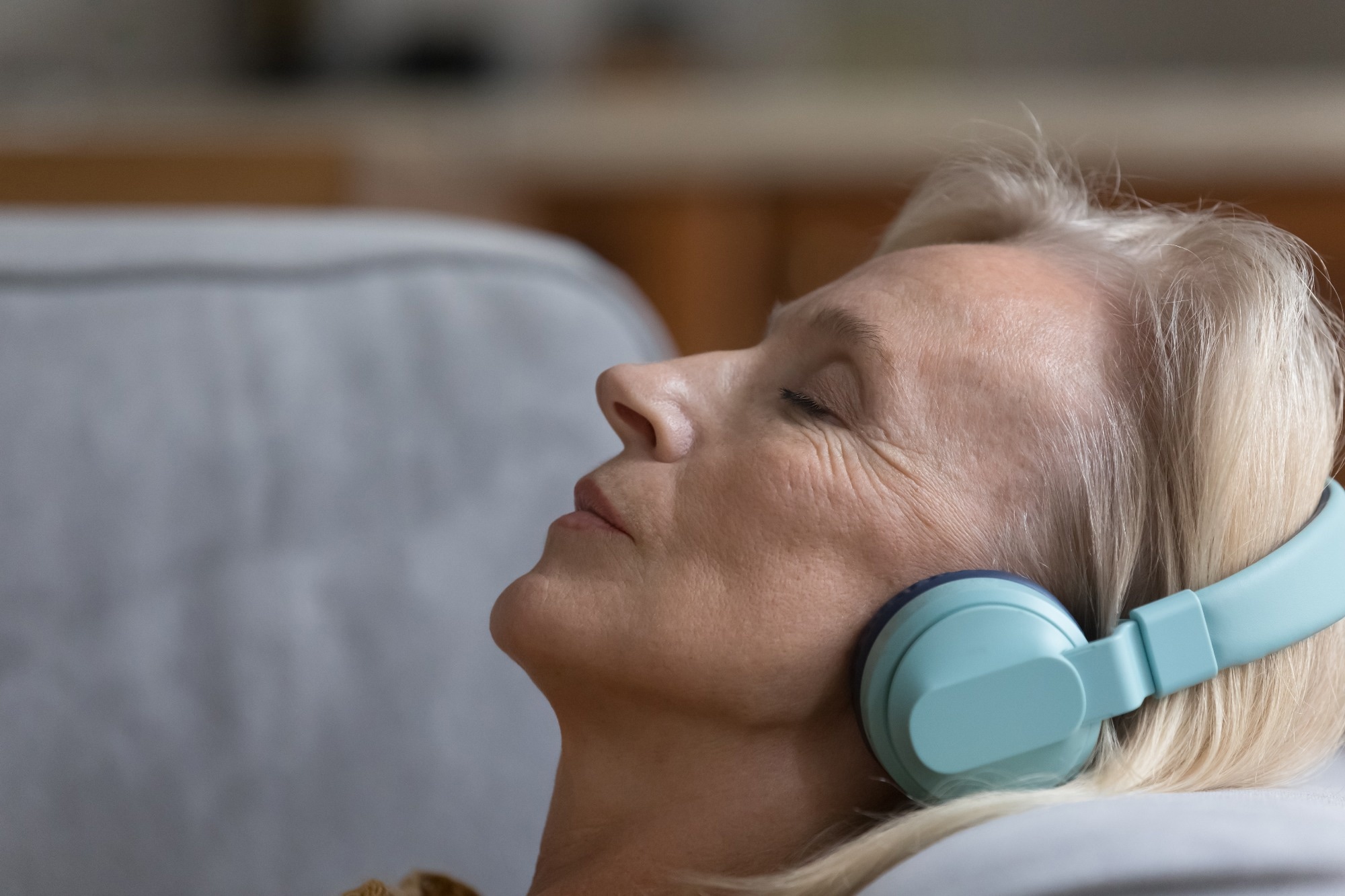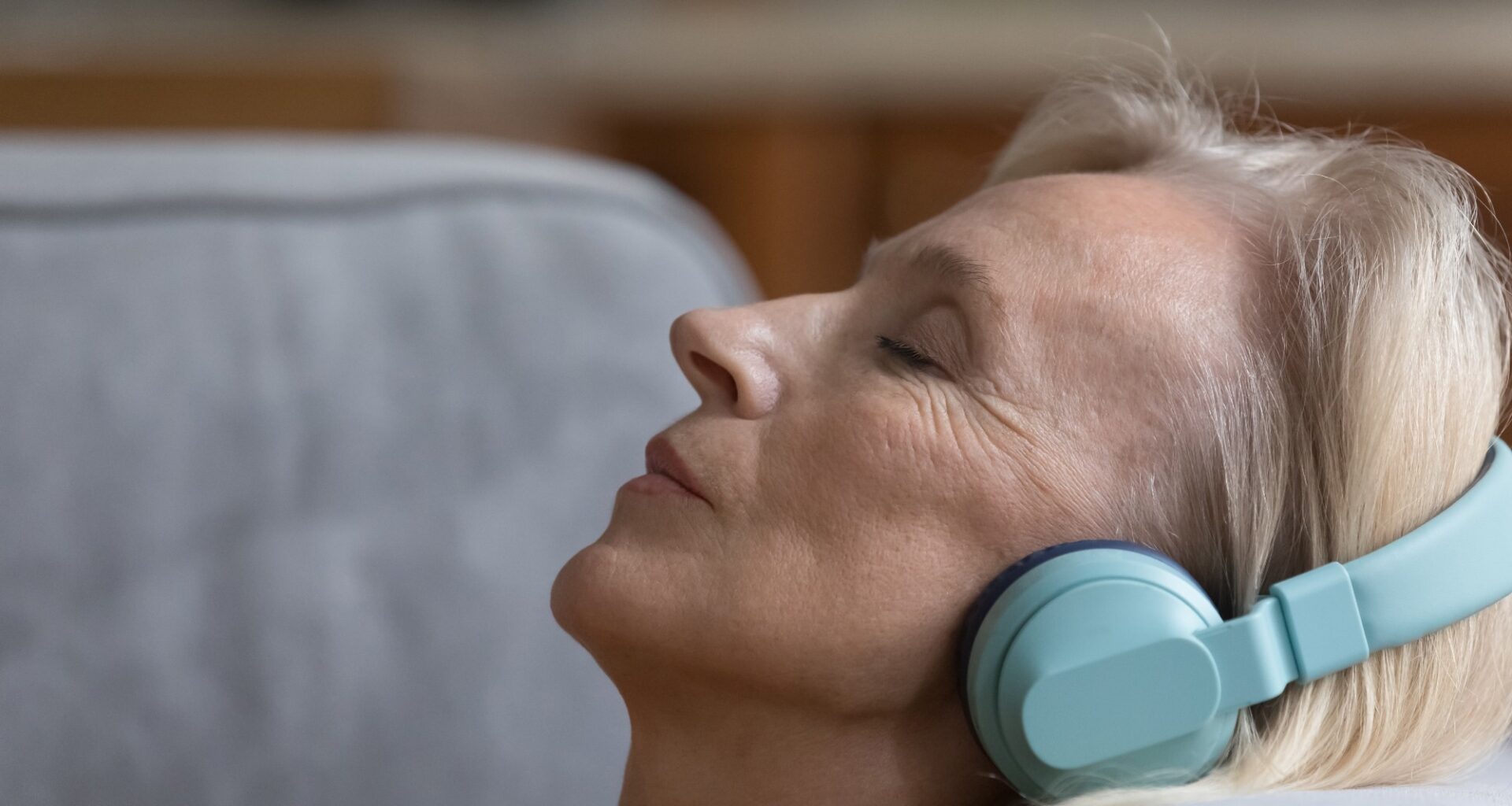A new meta-analysis finds that listening to soothing, slow-tempo music can meaningfully enhance sleep quality in older adults, though researchers warn the evidence is still limited and highly variable across studies.

Study: Effect of music therapy on sleep quality in elderly: A systematic review and meta-analysis. Image Credit: fizkes / Shutterstock
In a recent review published in the journal PLoS One, researchers systematically gathered and analyzed evidence from clinical trials to determine whether music therapy can improve sleep quality in older adults.
They found that music therapy significantly improved sleep quality for individuals over 50 years old compared to control conditions, although the results varied considerably between studies.
Sleep Disturbance as a Growing Geriatric Health Concern
Poor sleep is common among older adults, affecting 40–70% of this population and contributing to cardiovascular disease, depression, cognitive decline, and falls. Pharmacological treatments remain widespread but carry risks of adverse effects and dependence, prompting interest in safer, non-drug alternatives such as music therapy.
Mechanisms Linking Music Therapy to Sleep Regulation
Music therapy may improve sleep by reducing stress hormone levels, stimulating the release of melatonin, enhancing parasympathetic nervous system activity, and synchronizing biological rhythms with slow, soothing tempos. Despite this theoretical promise, evidence from prior studies has been inconsistent, and no previous large-scale synthesis had explicitly focused on elderly populations. This review, therefore, aimed to assess the overall efficacy of music interventions on sleep outcomes in adults aged 50 years and older.
Search Strategy and Study Selection Criteria
Following established systematic review guidelines, researchers searched seven major databases for randomized and non-randomized controlled trials involving adults aged 50 years and above. Eligible studies compared active or passive music interventions with control conditions that received no or non-musical interventions, and reported sleep quality outcomes using validated tools.
Characteristics of Included Studies and Interventions
From 473 identified articles, 10 studies met the inclusion criteria (six RCTs and four non-RCTs) published between 2010 and 2023, involving 602 participants aged 50 years and older across hospital, nursing home, and community settings. Most interventions involved passive listening to slow-tempo instrumental or classical music (60–85 BPM) for 20–60 minutes per session over durations ranging from a single session to three months. Sleep quality was primarily measured using the Pittsburgh Sleep Quality Index (PSQI).
Quantitative Findings and Statistical Variability
The meta-analysis, conducted using a random-effects model, found that music therapy significantly improved sleep quality, with a standardized mean difference (SMD) of −0.79, indicating a moderate to significant effect. However, confidence and prediction intervals (SMD −1.25 to −0.33; prediction −2.22 to 0.64) revealed considerable variability across studies, likely due to heterogeneity in intervention design, fidelity, and music type. Subgroup analysis showed statistically significant effects in RCTs but not in non-RCTs. Sensitivity analyses confirmed no single study unduly influenced outcomes, and publication bias tests indicated no bias.
Methodological Limitations and Certainty Assessment
Despite significant pooled benefits, the certainty of evidence was rated very low. Downgrading reflected risks of bias, inconsistent intervention protocols, small sample sizes, and substantial heterogeneity. Moderator analyses revealed no significant influence of music type, frequency, or duration on effect size, suggesting that unmeasured variables, such as adherence or cultural differences, may underlie the observed variation.
Clinical Implications and Research Recommendations
This systematic review and meta-analysis found that music therapy can meaningfully enhance sleep quality in older adults, with a moderate-to-large pooled effect consistent with prior meta-analyses. RCTs demonstrated clearer benefits than non-randomized studies, which often carried higher bias risk. Nonetheless, low overall certainty highlights the need for caution in clinical interpretation.
Future research should include larger, well-designed RCTs with standardized protocols, objective sleep measurements such as polysomnography, and cross-cultural validation to optimize music therapy’s application for elderly sleep improvement.
Journal reference:
Li, C., Kumar, A. P., Wankhar, D., Kuppusamy, M., Govindasamy, K. (2025). Effect of music therapy on sleep quality in elderly: A systematic review and meta-analysis. PLoS One, 20(11): e0334356. DOI: 10.1371/journal.pone.0334356

